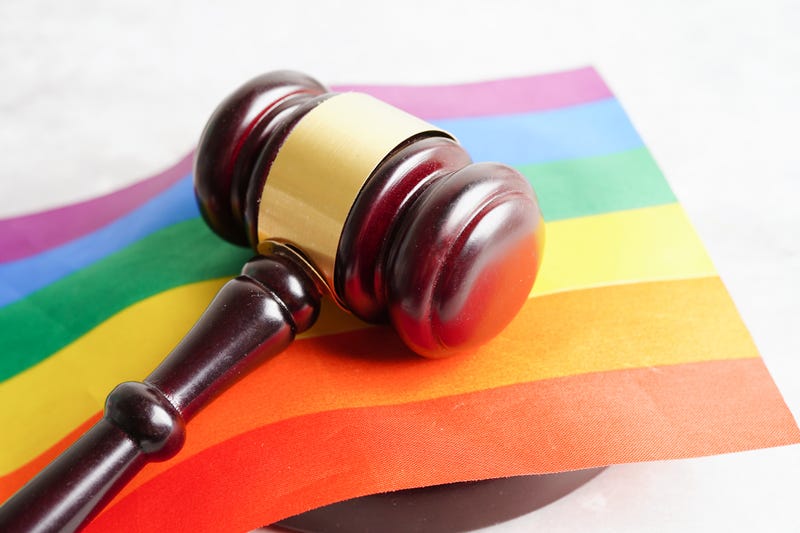
(WWJ) – The Michigan Supreme Court has adopted a new rule that requires all state court judges and their staff to use a person’s chosen pronoun and name for everyone who appears in court, including attorneys.
The rule, which is slated to take effect on Jan. 1, 2024, will also apply to all written court documents.
With the new rule, adopted on Wednesday, Michigan becomes the first state to adopt such a rule, according to the American Civil Liberties Union of Michigan.
The ACLU sent a letter on behalf of a coalition of LGBTQ+ advocates and allies supporting the proposed rule change.
“This is not about special treatment; it is about ensuring that anyone who identifies by a particular pronoun receives the dignity of being addressed by that gender when they are before a judge,” wrote Michigan Supreme Court Justice Kyra H. Bolden in the court order issued Wednesday.
Bolden was one of five of the seven justices who supported the new rule.
Jay Kaplan, Staff Attorney for the ACLU of Michigan’s Nancy Katz & Margo Dichtelmiller LGBTQ+ Rights Project, said the adoption is “incredibly uplifting.”
Kaplan said the ruling “sends an important message to Michigan’s transgender and gender non-binary community that they will be afforded the same dignity, courtesy, and fairness given to cisgender persons, and can expect equal access to justice in Michigan courts.”
According to the new order – which can be read here – says the first part of every document must contain a caption stating:
“Parties and attorneys may also include Ms., Mr., or Mx. as a preferred form of address and one of the following personal pronouns in the name section of the caption: he/him/his, she/her/hers, or they/them/theirs. Courts must use the individual’s name, the designated salutation or personal pronouns, or other respectful means that are not inconsistent with the individual’s designated salutation or personal pronouns when addressing, referring to, or identifying the party or attorney, either orally or in writing.”
